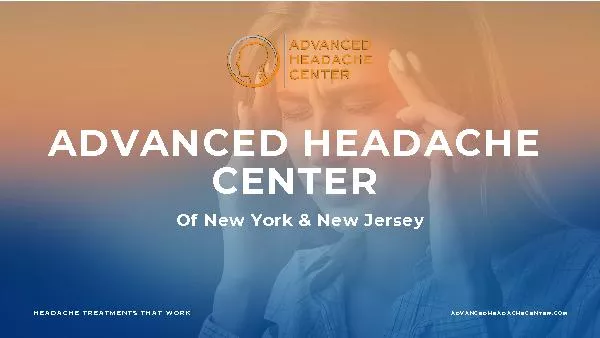PPT-Managing Headache Headache is an increasing problem
Author : tatyana-admore | Published Date : 2019-11-24
Managing Headache Headache is an increasing problem Figures for specific CCGs available at https wwwgovukgovernmentpublicationsneurologyserviceshospitalactivitydata
Presentation Embed Code
Download Presentation
Download Presentation The PPT/PDF document "Managing Headache Headache is an increas..." is the property of its rightful owner. Permission is granted to download and print the materials on this website for personal, non-commercial use only, and to display it on your personal computer provided you do not modify the materials and that you retain all copyright notices contained in the materials. By downloading content from our website, you accept the terms of this agreement.
Managing Headache Headache is an increasing problem: Transcript
Download Rules Of Document
"Managing Headache Headache is an increasing problem"The content belongs to its owner. You may download and print it for personal use, without modification, and keep all copyright notices. By downloading, you agree to these terms.
Related Documents














